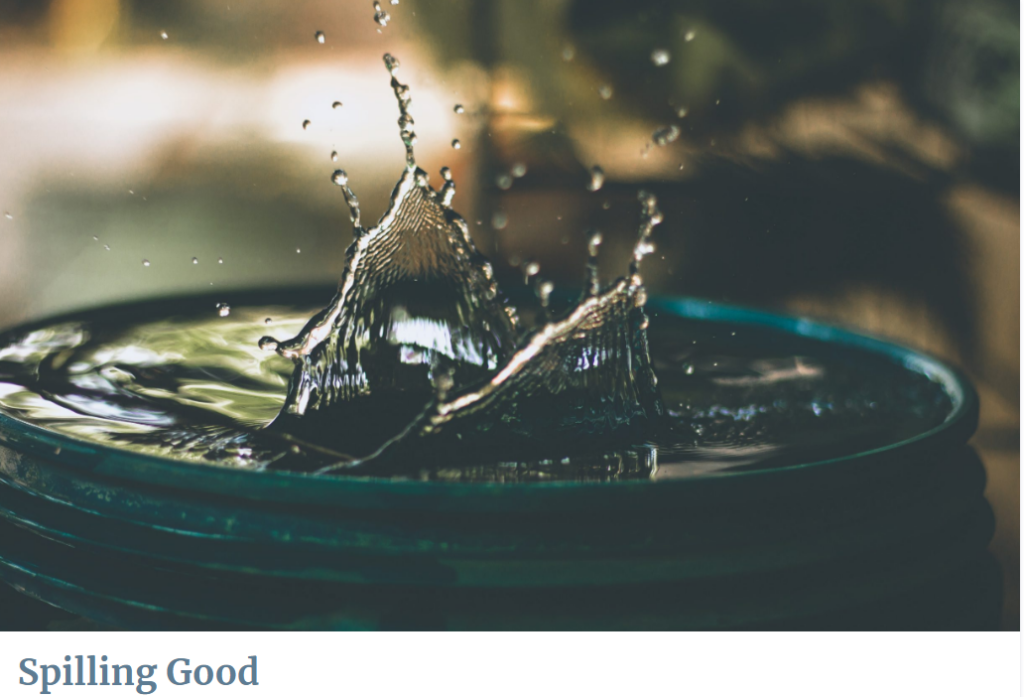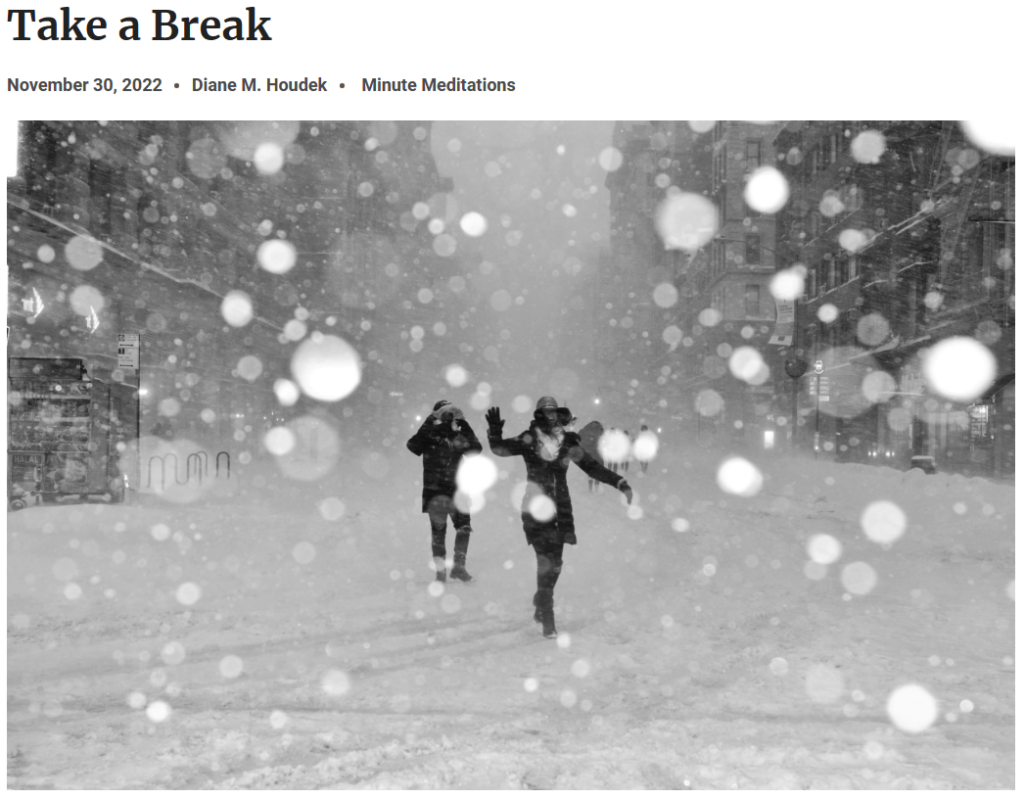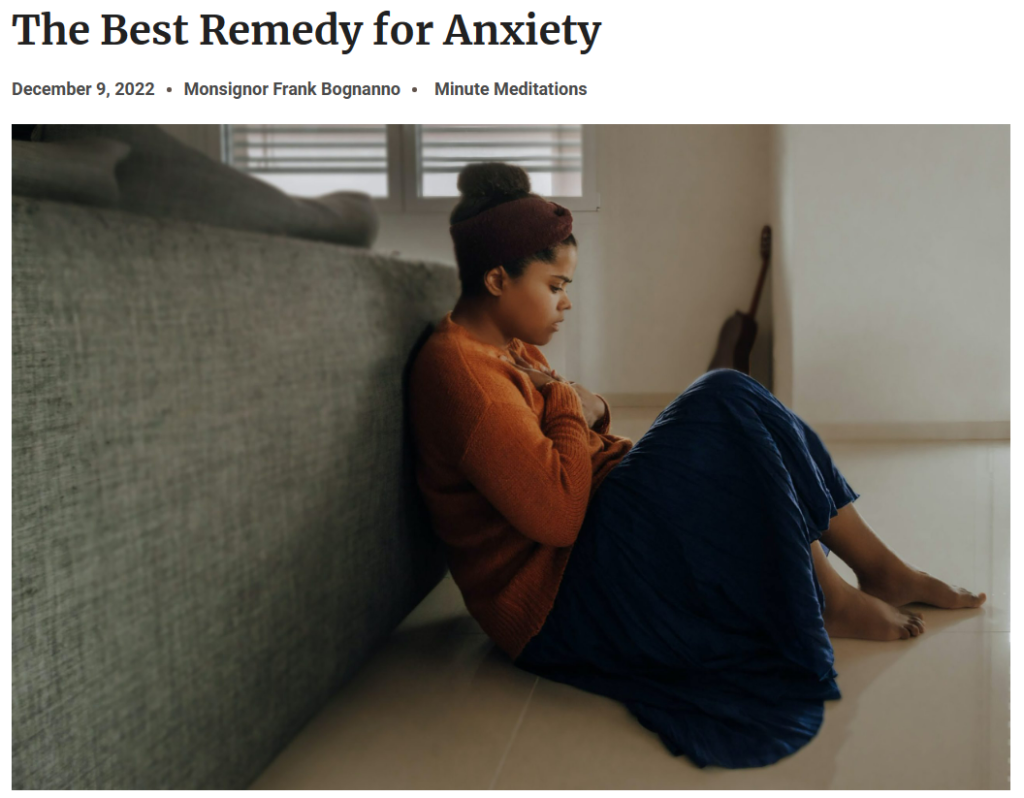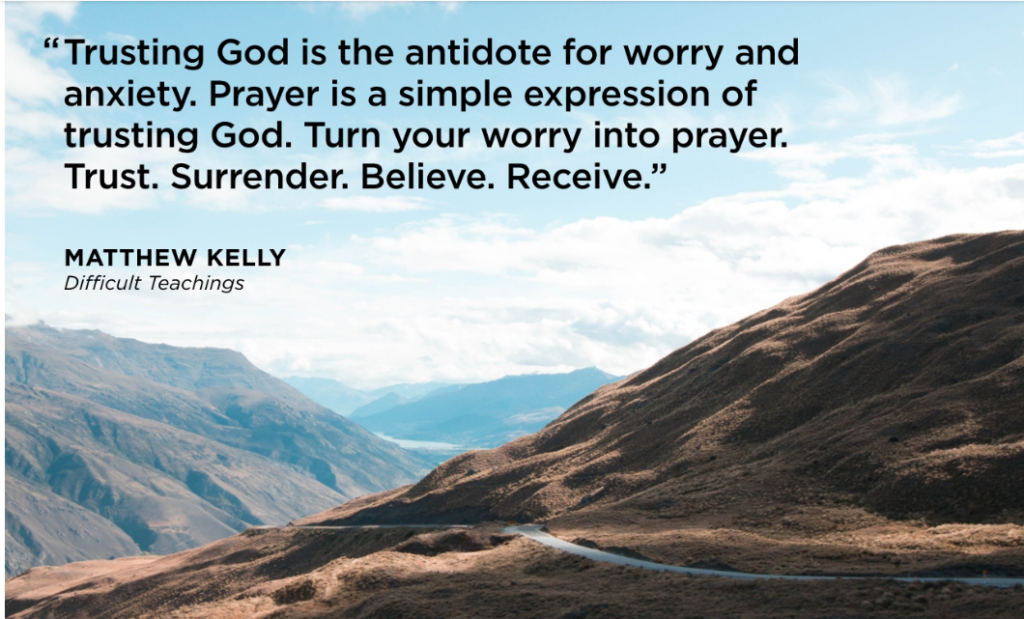
mindfulchristianitytoday.com

416 N 2nd St, Albemarle NC 28001 | (704) 982-2910

mindfulchristianitytoday.com

Spilling good brings clarity, maybe especially in times of uncertainty. Because sometimes, life can feel too big. Too precarious. Times that break us, undo us. Times when the labels we give our limitations make our anxiety or fear feel bigger than life itself. And sometimes (if I’m honest), I’ve got nothing to give. But I’m a storyteller, and I take consolation in stories about our human capacity for recovery and renewal. When I focus on what is missing, I do not see my capacity for enoughness, inside.
The ordinary moments of every day (even those that confuse us, unnerve us, or break our hearts) are hiding places of the holy. Where the sacred is alive and well. Where hope grows. Anxiety and vulnerability are real, yes. But the answer is not to chase vulnerability away. It’s the opposite. My vulnerability is the signal that I am human, with the capacity to be stretched, to give my heart, to be broken, to cry with those who break, to spill good. And I don’t ever want to lose that.
—from the book Stand Still: Finding Balance When the World Turns Upside Down,
by Terry Hershey, page 45

We take seriously the words of Jesus in Luke’s Gospel when he warns against “carousing and drunkenness.” But he also warns against “the anxieties of daily life.” It’s so easy to get wrapped up in the many tasks of this season of preparation. Cleaning, cooking, shopping, wrapping packages, cleaning some more, baking, doing dishes, going on one more shopping excursion. As so often happens during busy times, we find ourselves going to bed late, getting up early, grabbing fast food on the go, skipping a workout at the gym because we don’t have time, and generally not taking good care of ourselves. Then we go to parties where we eat too much rich, sweet food, and drink one too many alcoholic beverages and the downward spiral continues. Sit quietly for five or ten minutes today. Pay attention to your breathing. Hear Jesus say, “You are busy and anxious about many things.” You know what those anxieties are. As you breathe in calm reassurance, breathe out those anxieties and turn them over to the Lord.
Ask your body and your spirit what they need at this time. It might be rest. Then again it might be more exercise. Our needs change throughout our lives and we don’t always pay attention to that. Take a walk. Take a nap. Do both. Cancel an engagement and stay home for the evening. Or resist the pull of the recliner and Netflix and go to dinner with a good friend. The main thing is to take time to ask yourself in any given moment if what you’re doing is really what you need or if another choice would be better. Then make the better choice, choose the better part.
— from the book Simple Gifts: Daily Reflections for Advent
by Diane M. Houdek

“It is the Lord who goes before you. He will be with you; he will not fail you or forsake you. Do not fear or be dismayed.” —Deuteronomy 31:8
Most of the time our anxiety stems from a fear of something or someone in the future. The next time it happens to you, try the “Three Ps Remedy”: Prepare—Do what you can now. Simply ponder, What can I do in a proactive way that makes sense? Usually one or two things will occur to you. Do them and watch your anxiety begin to shrink. Present—Live in the present moment, not in the imagined future. Living in the now can help smother the fire of fear. Pray—Know that God is in of control of the future. God has the power and the love to do what we cannot do. Our Father’s love can and does shape the future. Pray and experience the peace that will replace the anxiety, because the God who loves you unconditionally is in control now and in the days ahead. Prayer Lord, show me how to prepare, to live in the present moment, and to pray when fear begins to creep in. Amen.
—from the book Three Minutes with God: Reflections and Prayers to Encourage, Inspire, and Motivate
by Monsignor Frank Bognanno



Now, in this time, in this space, in this Presence, is the invitation to an essential turning toward God. First, we reflect on the obstacles to overcome. Perhaps the obstacles we face are clutter or schedules, maybe they are prejudices, grudges, or judgments. When we limit any of these things, we turn our focus toward serving, loving, honoring, and adoring the Lord God. Next, the cares and anxieties that often overwhelm us, such as financial, medical, or familial concerns or conflicts, can be put aside in this prayerful, all loving Presence. As we turn these worries over to God’s care, we strive to allow our adoration to strengthen our faith, trust, hope, and compassion.
— from the book Eucharistic Adoration: Reflections in the Franciscan Tradition
//Franciscan Media//

“Pray, hope and don’t worry. Anxiety doesn’t help at all. Our Merciful Lord will listen to your prayer.”— Saint Padre Pio
//The Catholic Company//

Humans are the only creatures who have knowledge of their own death. Its awareness creeps up on us as we get older. All other animals, plants, and the cycles of nature themselves seem to live out and surrender to the pattern of mortality. This places humans in a state of anxiety and insecurity from our early years. We know on some level that whatever this is that we are living will not last. This changes everything, probably more than we realize consciously.
So our little bit of consciousness makes us choose to be unconscious. It hurts too much to think about it. On this last Sunday before Palm Sunday, we dare to look at the “last enemy,” death. And the only way we can dare to part the curtain and view death is to be told about our resurrection from it! Yet, I assume we all know that Lazarus did eventually die. Maybe ten years later, maybe even twenty, but it did happen, we assume. What then is the point of this last dramatic “sign” before Jesus’ own journey toward death? An important clue is given right before the action, when the disciples try to discourage Jesus from going back to Judea where he is in danger. Jesus says calmly, “Are there not twelve hours in the day? When a person can walk without stumbling? When he sees the world bathed in light.”
Jesus refuses to fear darkness and death. Quickly he adds, “Our friend Lazarus is sleeping, I am going to wake him” (John 11:9–11). Those who draw upon the twelve hours, who see the world bathed in light now, have begun to see the pattern. As is often the case with wise people, they let “nature nurture them.” Yes, the other hours of darkness will come, a metaphor for death, but now we know that it will not last. It is only a part, but not the whole of life—just as the day itself is twelve hours and night is the other twelve, two sides of the one mystery of Life.
Jesus’ job is simply to “wake” us up to this, as he did Lazarus and the onlookers. We must now “see that the world is bathed in light” and allow others to enjoy the same seeing—through our lived life. The stone to be moved is always our fear of death, the finality of death, any blindness that keeps us from seeing that death is merely a part of the Larger Mystery called Life. It does not have the final word.
“Good God, the creator of light and darkness, You who move the sun and the stars, move us into the place of light, a light so large that it will absorb all the darkness”
— from the book Wondrous Encounters: Scriptures for Lent
by Richard Rohr, OFM
//Franciscan Media//

//Clergy Coaching Network//